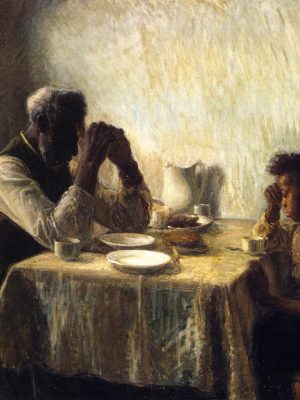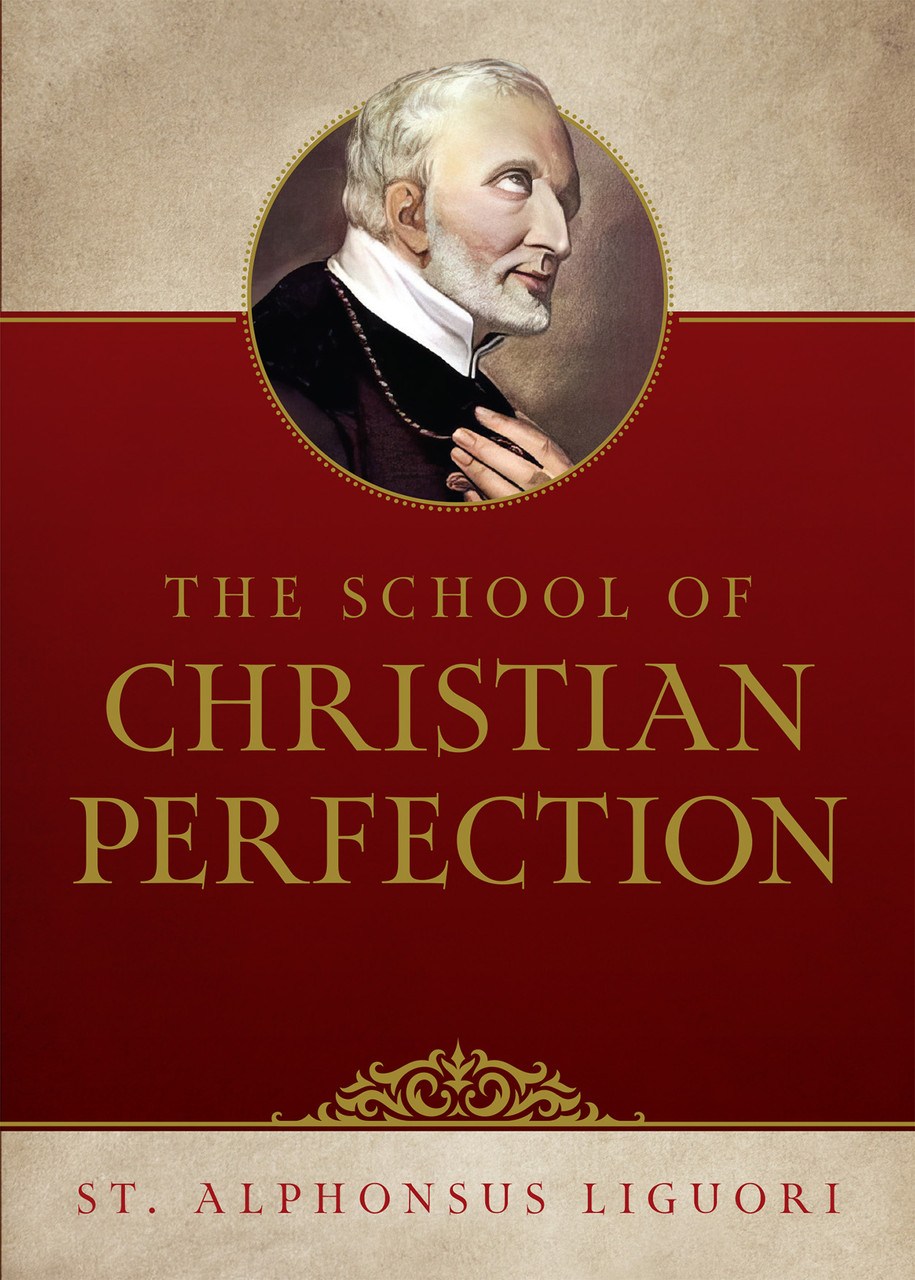Jesus taught that if we wish to enter the kingdom of Heaven we must become poor in spirit. But what does this mean and how do we attain it? Follow Saint Alphonsus Liguori as he guides you through poverty of spirit and teaches you how to cultivate it in your interior life.
“Blessed are the poor in spirit, for theirs is the kingdom of heaven.”
—Matt. 5:3
What Is Poverty of Spirit?
When the masters of the spiritual life speak of poverty in spirit, they generally understand it in a twofold sense. In the restricted sense it means a detachment of the heart from earthly possessions. In the broad sense, by poverty in spirit they mean detachment from everything earthly, no matter what it may be. In this sense, poverty in spirit is necessary for all who are striving after perfection.
Our heart cannot exist without love; it will either love God or creatures. If it does not love creatures, it certainly will love God. In order to become holy we must therefore banish from our heart all that is not for God. When anyone came to the Fathers of the desert and desired to be received by them he was asked: “Do you bring an empty heart that it may be filled by the Holy Ghost?” And they were right, for a heart that is filled with the things of earth has no room for the love of God. He who brings a vessel filled with earth to the spring will never be able to fill it with water until he empties it of the earth with which it is filled. How does it happen that so many pray and go frequently to Holy Communion, and still make no considerable progress in the love of God? The reason is doubtless because the heart is full of self-esteem, of vanity, self-will and attachment to creatures. He, therefore, who wishes to arrive at the perfect love of God must practice poverty in spirit. He must be detached from worldly possessions, from temporal honors, from his fellow creatures and from himself.
THE POOR IN SPIRIT
The poor of this world do not possess poverty of spirit from the mere fact that they suffer the want of the goods of this life. Poverty of spirit consists in the desire to possess nothing but God. “I meet a poor man,” says St. Augustine, “and yet I find he is not poor”; that is to say: Many are poor in reality, few in spirit and desire. St. Teresa says that they who appear externally poor without being so in spirit deceive both the world and themselves. What will their poverty in possession avail them? He who is externally poor, but in his heart has an insatiable desire for wealth has only the burdens, but not the virtue of poverty. The truly virtuous poor desire nothing but God, and for that very reason they are immensely rich. Of them St. Paul speaks when he says: “Having nothing, they possess all things.” (2 Cor. 6:10).
But how can they who are rich in the goods of this earth still possess poverty in spirit? They can do so by having no inordinate attachment to their riches. What are the goods of this earth? They are really goods only in appearance that can never satisfy the heart of man. “You have eaten,” says the prophet Aggeus, “but you have not had enough.” (Agg. 1:6). Instead of satisfying the hunger, says St. Bernard, they only increase it. If worldly goods could satisfy the heart of man, the rich and the mighty would be perfectly happy; but experience teaches the contrary. As a rule they are the most unhappy of men, for they are tortured by fears, jealousies and sadness. “Vanity of vanities and all is vanity.” I have had all these things, said Solomon, “and behold all is vanity and vexation of spirit.” (Eccles. 1:14).
TRUE DETACHMENT
Our detachment from the things of this earth is proved by our resignation to the Will of God in temporal disasters, such as financial loss by accident or theft. Faith teaches us that nothing happens without the permission of God. If, therefore, we suffer the loss of our good name or our temporal possessions, God does not of course will the sin that is thereby committed, but He wills or permits the suffering that falls to our lot and He wills it for our good. When a messenger came to the pious Job and announced that the Sabeans had stolen all his belongings and murdered his children, the holy man replied: “The Lord gave, and the Lord hath taken away.” He did not say: “The Lord gave and the Sabeans have taken away,” but: “The Lord gave and the Lord hath taken away: as it hath pleased the Lord, so is it done: blessed be the name of the Lord.” (Job 1:21). Finally, we prove to evidence that we possess the spirit of detachment when we are ready to sacrifice everything we have—riches, honors, dignities, position—in short, every temporal advantage, rather than offend God.
THE POVERTY OF CHRIST
The second means consists in frequent meditation on the poverty of Jesus Christ and the esteem which He had for this holy virtue. For our good, and in order to give us an example, our Divine Redeemer wished to lead so poor a life on earth that St. Mary Magdalen de Pazzi called poverty the spouse of Jesus Christ. St. Bernard says: “Poverty was not to be found in Heaven, but it reigned on earth. Mankind, however, did not recognize its worth, and therefore the Son of God came down to choose poverty for His inseparable companion and to teach us to esteem it.”
A HIDDEN LIFE
A hidden and obscure life affords great security to those who sincerely desire to love God. Our Divine Master Himself deigned to teach us this by His own example, for He spent 30 years in the obscurity of Nazareth and the workshop of a humble carpenter. In imitation of their Divine Model, many saints withdrew into the desert and lived in remote caves to escape the esteem of men. The desire to put ourselves forward and merit the plaudits of men, to be regarded as very successful in our undertakings, is, according to St. Vincent de Paul, an evil which causes us to forget our God; it vitiates our holiest actions and more than anything else impedes our progress in the spiritual life.
To be pleasing and acceptable in the sight of God, we must therefore banish from our hearts the desire to appear before men to win their approval and applause, and especially the desire to rule over others. “Inordinate ambition,” writes Peter of Blois, “imitates charity but in a perverse manner. Charity endureth all things, but only for the sake of eternal goods; ambition endureth all things, but only for the wretched honors of this world. Charity is full of gentleness, especially towards the poor and despised; ambition is full of gentleness, but only towards the influential of this world who are in a position to satisfy its cravings. Charity believeth and hopeth all that pertains to eternal glory; ambition believes and hopes in everything that leads to the vain honor and glory of this world.”
ooo
This article is taken from a chapter in The School of Christian Perfect by Saint Alphonsus Liguori which is available from TAN Books.









